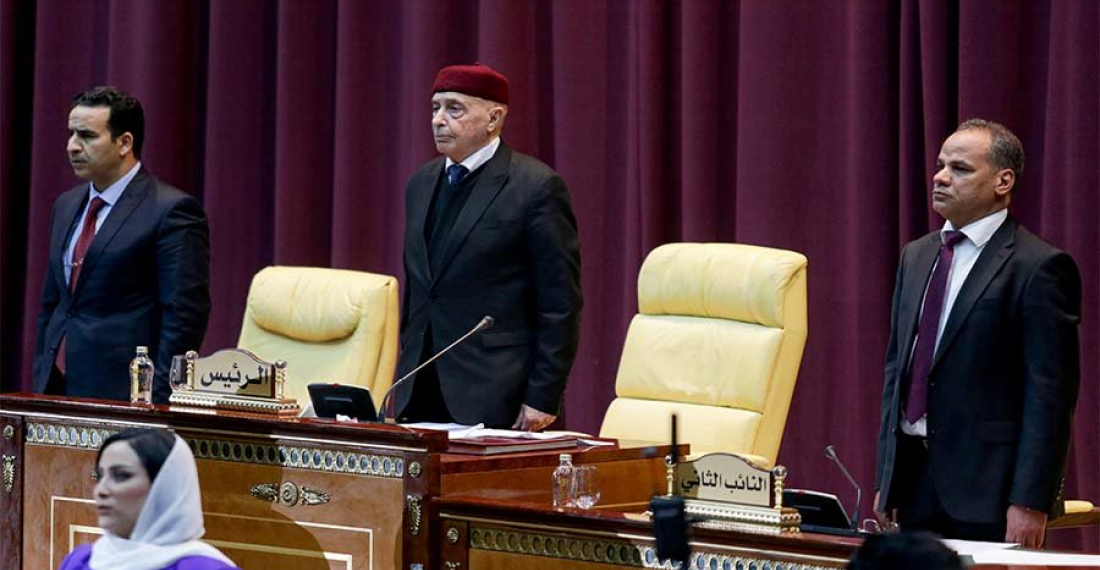Libya’s Parliament, the House of Representatives (HoR), failed on Monday (8 March) to reach an agreement to approve the newly selected unity government. The meeting was suspended until today (9 March), and the chamber summoned prime minister-elect Abdul-Hamid Dbeibah for consultations.
The session held on Monday in the coastal city of Sirte was marked with tense debate. About 130 members from the 200-seat legislature attended the session to debate Dbeibah's proposed cabinet.
Talks are due to continue today. The Speaker, Aguila Saleh, said, "We will strive to overcome many hurdles and obstacles.”
Holding the session was itself a challenge as major roads were blocked and many MPs had to travel by air. Luckily more than a hundred arrived which was necessary for a quorum.
The session is important for many Libyans as the Government of National Unity will replace the previous Government of National Accord and its rival, the eastern-based Tobruk government. If the HoR fails to approve the cabinet, the Libyan Political Dialogue Forum (LPDF) could approve the cabinet itself.
Lists of the proposed cabinet members have not been made public. Dbeibah has been hesitant to release the list to the public and it is believed that the MPs themselves received the nominations only at the beginning of the parliamentary session. Some sources claim that Dbeibah himself would be the minister of defence and the cabinet could be as big as 35 members. Several MPs demanded reducing the size of the cabinet.
Addressing the Parliament in a recorded video message before the session, Dbeibah emphasised that the cabinet should be political and geographically representative. He hoped for quick approval so the cabinet can commence its responsibilities.
“I am talking to you and I see with my own eyes the new government working as an army of servants to this great people, treating the electricity crisis as part of what it pledged, and moving the wheel of the economy, so that the queuing crisis in front of the banks ends."
A major challenge for the parliamentary session is the refusal of some parliamentarians to vote before legal guidelines for the transition period are established. These guidelines concern the agreement concluded in Tunis last November which outline the necessity for a roadmap towards the elections. The argument of these parliamentarians is that giving the currently proposed cabinet an urgent vote of confidence without full consideration of the Tunis talks could leave Dbeibah with too much political influence.
Another challenge for the GNU is the UN report that presented allegations of corruption against the LPDF who elected the new leadership. A confidential report by the UN Panel of Experts, leaked to AFP last month, said bribes of up to $200,000 had been offered to members of the forum.
Last week, Libya's executive leadership asked the United Nations Committee of Experts to conduct an investigation but has dismissed the news as rumours.
The UN envoy to Libya, Ján Kubiš, said that the efforts to approve the cabinet "must not be derailed under any pretext, including through the circulation of fake news, such as the text message circulated about UN investigation of bribery allegations."






